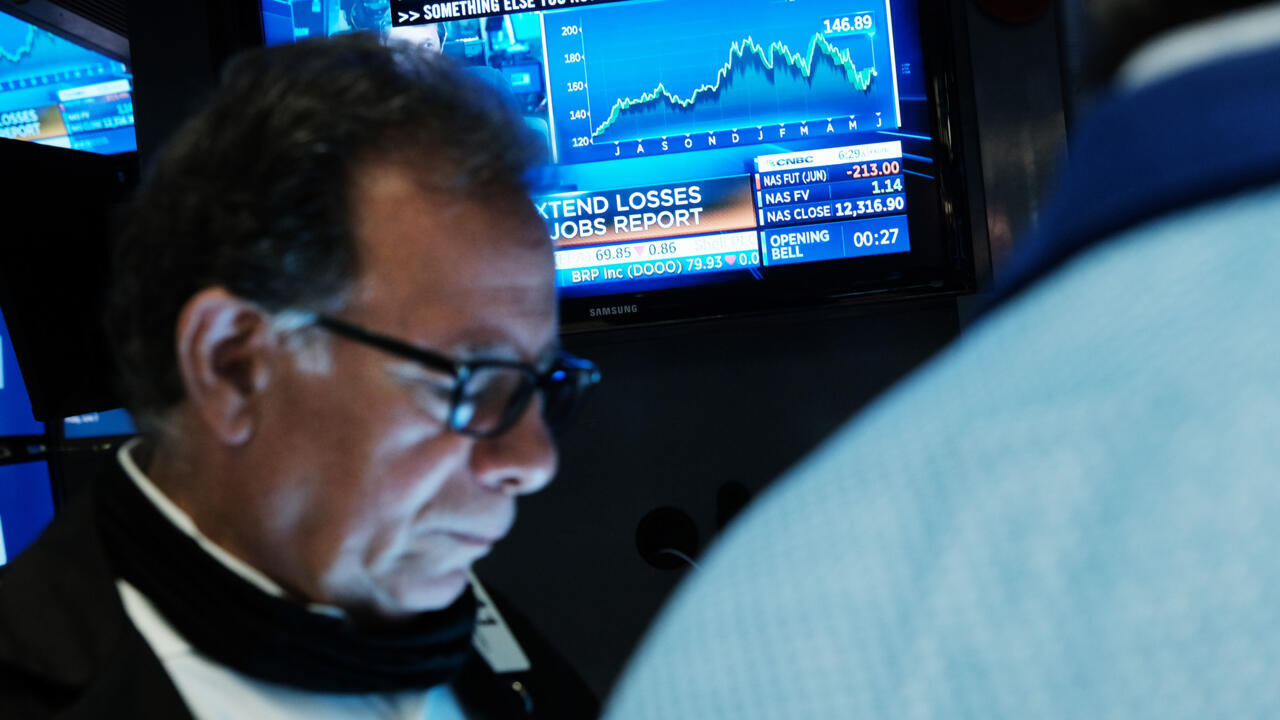According to final results, the Dow Jones index concluded down 0.69% to 31,072.61 points.
The Nasdaq, with strong technological coloring, dropped 0.81% to 11,360.05 points and the S&P 500, 0.84% to 3,830.85 points.
It was the tech sector that veered first mid-session after reports from Bloomberg that Apple plans to slow hiring and investment to deal with a decelerating economy.
The action of the firm at the apple stalled shortly before 6:00 p.m. GMT to end down 2.06% to 147.07 dollars, dragging the Nasdaq in stride.
Another sector gripped by fear, real estate, as the National Association of Home Builders' Developer Confidence Index plunged a record 12 points to 55 in July.
Builders of new homes say they are pessimistic about market conditions while interest rates on thirty-year mortgages, the benchmark in the United States, have almost doubled in a few months to approach 6%.
Of the eleven S&P sectors, nine ended in the red, information technology and real estate neck and neck at -1.03% and -1.08% respectively.
The energy sector finished in the lead (+1.96%) while the price of a barrel of Brent and West Texas Intermediate rose by more than 5%, the market receiving no relief on the supply of black gold despite US President Joe Biden's visit to the Middle East.
"The weakness came from the technology sector. Investors are becoming cautious again. They are on the lookout for more convincing data to ensure that the earnings season is not going to be bad", commented for AFP Peter Cardillo , an analyst at Spartan Capital.
“Investors need more proof that American companies are not about to generate negative results,” he warned.
The business results test
After several large banks including Goldman Sachs (+2.54%) and Citigroup (+0.12%) which surprised analysts with better than expected quarterly results, the markets are watching Netflix, Tesla, Twitter, but also Johnson and Johnson, Lockheed Martin and United Airlines among others.
IBM (-1.28% at the close) posted slightly better-than-expected profits and sales in the second quarter, according to its figures announced after the market closed.
In all, some 12% of S&P 500 companies are due to report quarterly this week.
Boeing, which started the session up more than 3% after taking a firm order for 100 models of the 737 MAX 10 from the American airline Delta Air Lines, ended stable (-0.01% to 147.72 dollars) .
Delta Air Lines jumped 3.49% to $31.14.
As for the bond market, ten-year rates held up very slightly to 2.96% against 2.93% on Friday, while investors believe less in a sharper rate hike from the Federal Reserve (Fed) on July 27 and therefore have fewer fears of recession.
According to CME Group's futures-based counts, 69% of traders now believe the Central Bank will raise rates by 0.75 percentage points compared to mid-last week they were expecting at 80% to a screw turn of one percentage point.
"The market has already priced in a recession. It knows the Fed is going to raise rates by 75 basis points next week. This week it will be the European Central Bank that will start raising rates. All of that is already on the square," said Peter Cardillo.
"The big test is the results of companies that have not started too badly," he said.
© 2022 AFP

